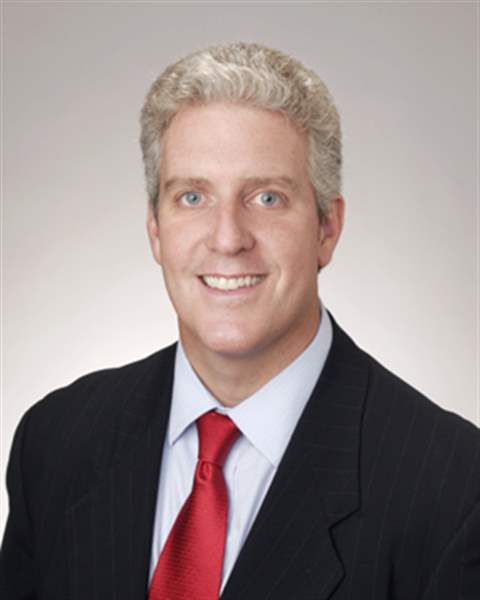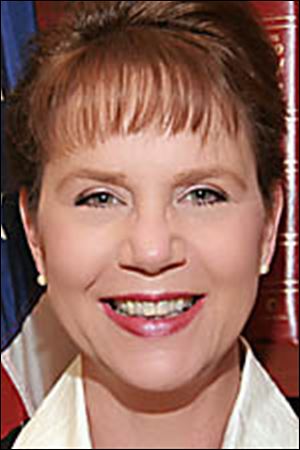
FEATURED EDITORIAL
Supreme justice
10/6/2014
O’Donnell

O’Donnell
Two of the seven seats on the Ohio Supreme Court are up for election on next month’s ballot. The Blade recommends the election of Democrat JOHN O’DONNELL and incumbent Republican SHARON KENNEDY.
Few agencies in state government are less understood, or more vital to democracy, than the Supreme Court. Justices, although shadowy figures to most voters, determine legal and constitutional issues that directly affect Ohioans.
THE BLADE RECOMMENDS: Our picks for the 2014 election
Click here to read more Blade editorials
As members of the court of last resort, Supreme Court justices may decide how much people pay to obtain public records, whether a municipality can restrict free speech and expression, or whether a prisoner lives or dies. Most of its cases arrive on appeal from 12 district courts across Ohio.

Kennedy
Supreme Court justices serve six-year terms and earn $141,600 a year. The chief justice is paid $150,850 a year.
Two incumbent Republican justices, Judith French and Sharon Kennedy, seek full terms. Ms. French faces a formidable challenge from Cuyahoga County Common Pleas Judge O’Donnell. Ms. Kennedy is running against a term-limited Democratic state representative, Tom Letson of Warren. Both Republicans hold large campaign cash advantages over their challengers.
Justice French’s missteps
Ms. French, 52, of Grandview Heights, compiled considerable legal experience before she joined the Supreme Court in 2013 as an appointee of Gov. John Kasich. She authored hundreds of legal opinions during her eight years on the 10th District Court of Appeals.
From 2002 to 2004, Ms. French served as chief legal counsel to Gov. Bob Taft. From 1997 to 2002, she was an assistant attorney general and chief counsel under Attorney General Betty Montgomery. She also served as deputy director for legal affairs of the Ohio Environmental Protection Agency.
Personable and accessible, Ms. French has spoken to students, civic organizations, and other groups in all of Ohio’s 88 counties. As an ambassador for the Supreme Court, Ms. French has done a splendid job. But her record on providing access to justice for Ohioans has been far less exemplary.
In a case that involved an unusual alliance of liberals and conservatives, she ruled for the court majority that the group did not have standing to challenge the constitutionality of Governor Kasich’s JobsOhio, a privatized economic development agency. By not allowing the court to examine whether the state constitution prohibits the state from investing in a private entity, justices denied the taxpayers of Ohio an answer to a legitimate and important question.
In another case, Ms. French sided with the majority in favor of American Electric Power, deciding the utility could keep more than $350 million of unjustified charges it collected from customers. Before the decision, Ms. French got a campaign contribution of more than $6,000 from the American Electric Power Committee for Responsible Government.
That practice was not illegal or, strictly speaking, unethical. But it does not represent what Ohioans should expect from the supreme arbiters of their laws. More broadly, Ohio has some of the nation’s weakest ethics rules to police the link between campaign money and judicial conduct, placing an even greater burden on justices to regulate their own behavior.
The case for O’Donnell
As a Supreme Court justice, Mr. O’Donnell would set a higher standard. During his re-election campaign in 2012, he decided not to accept or solicit campaign contributions from litigants in a case he was presiding over.
No fair-minded judge or justice is explicitly partisan, but life experiences and core beliefs shape a justice’s world view and influence his or her interpretation of the law. Mr. O’Donnell, 49, of Lakewood, would provide needed ideological diversity on a Supreme Court that has become far too beholden to the interests of big business and comfortable with the trappings of secrecy.
Mr. O’Donnell has served as a Cuyahoga County judge for 10 years. He worked as a trial attorney from 1999 to 2002. As a judge, he has handled criminal and civil cases and a specialized docket of business-versus-business litigation.
One of the state’s most respected judges, Mr. O’Donnell has recent and extensive trial court experience on one of the state’s busiest dockets, which would well serve the high court. Much of the Supreme Court’s workload focuses on the validity of trial court proceedings.
As an experienced trial judge, Mr. O’Donnell knows what can go right and what can go wrong in criminal and civil proceedings. He has also authored more than 100 judicial opinions, an unusually high number for a trial court judge. He would make an outstanding justice who would help ensure that Ohio’s constitution works for everyone.
The case for Kennedy
In the other Supreme Court contest, Ms. Kennedy, 52, while not always on the right side of a ruling, has shown competence and integrity on the court. She is committed to what she calls a “literal reading of the law.” Her commitment to that standard has created an independent, almost iconoclastic, justice.
She correctly, and courageously, dissented in an appalling ruling by the Supreme Court on government secrecy and open records. The court denied attorney fees to a woman in suburban Cleveland who waged a long and successful battle to obtain public records.
In a 6-1 ruling, justices skirted the intent of state law by ruling that the citizen who sought public records was not entitled to attorney’s fees because city officials finally gave up the records before a court ordered them to do so. As Justice Kennedy noted in her dissent, the ruling enables public offices to sit on public-records requests — hardly the law’s intent.
Before her election in 2012 to serve the rest of an unexpired term on the Supreme Court, Ms. Kennedy had served on the Butler County Court of Common Pleas since 1999. From 2005 to 2012, she served as administrative judge of that court’s domestic relations division.
She started her criminal justice career as a Hamilton city police officer, making her perhaps the only Supreme Court justice in Ohio’s history to have worked as a cop. Ms. Kennedy has also done defense work, and has a strong and commendable interest in diverting young people from prison. She plans to establish a pilot project with juvenile court judges.
“Once you’ve institutionalized a youth, you’ve just exponentially increased the likelihood that they will become incarcerated as an adult,” she said.
Ms. Kennedy is running against a largely unqualified and undistinguished opponent who was rated “not recommended” by the Ohio State Bar Association. Mr. Letson, an attorney and four-term lawmaker, did not respond to requests from The Blade editorial page for information about his candidacy.
Voters should retain Justice SHARON KENNEDY and elect JOHN O’DONNELL to the Ohio Supreme Court.